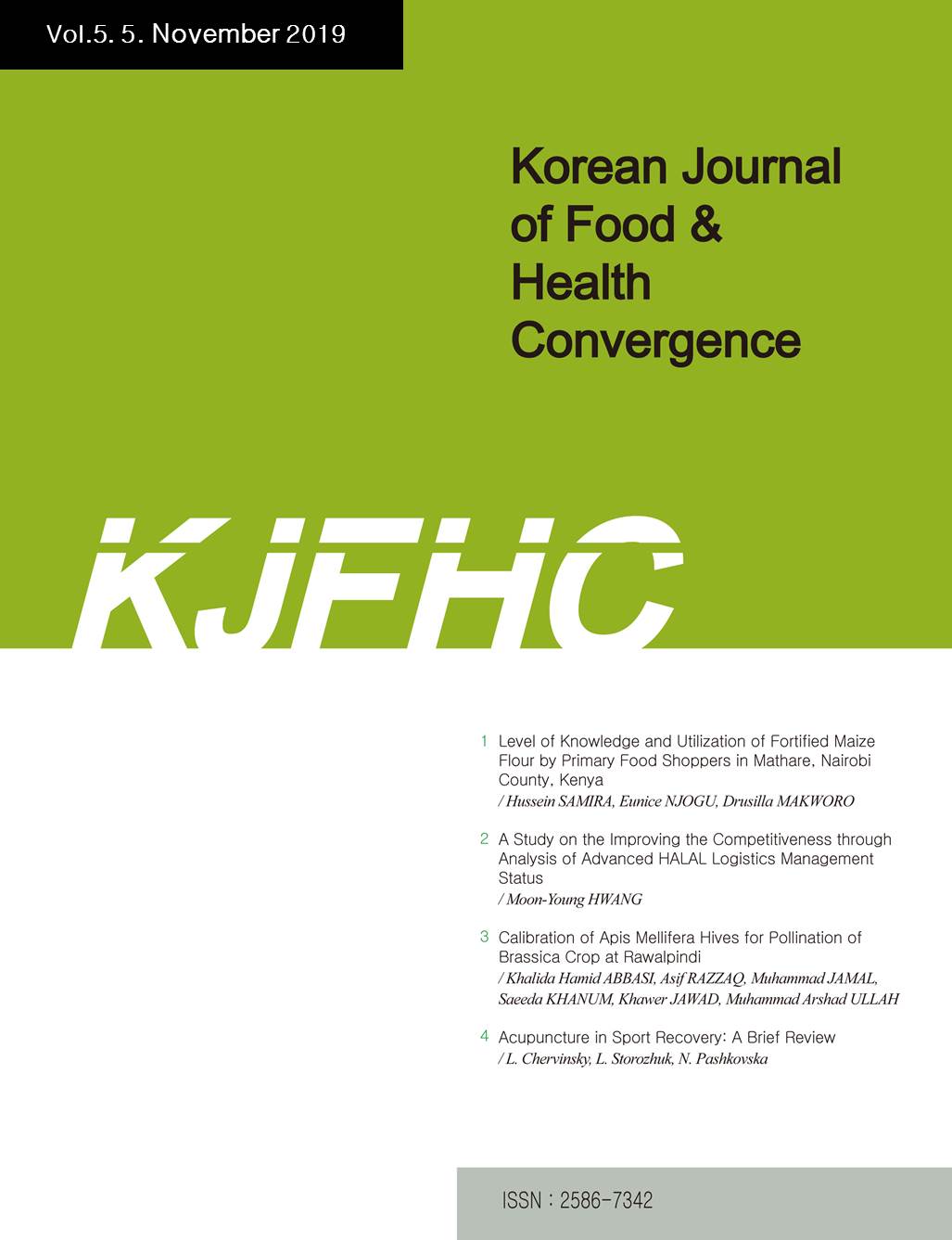- Log In/Sign Up
- E-ISSN2586-7342
- KCI
 E-ISSN : 2586-7342
E-ISSN : 2586-7342
JeungSun LEE
Min-Kyu KWAK
Abstract
Lactobacillus plantarum and Leuconostoc mesenteroides are crucial functional starters and predominant isolates in a wide range of fermented foods, particularly kimchi, whose constituents exhibit bioactive properties. We previously developed a methodology using anion exchange resins to purify peptidyl compounds from Lb. plantarum LBP-K10. Antibacterial cultures of Lb. plantarum LBP-K10 were obtained from the respective cultures' supernatants and filtrates. However, conclusive evidence of the efficacy of kimchi filtrates in eradicating pathogenic bacteria is lacking. We aimed to simulate the potential effects of antibacterial filtrates that contained antibacterial compounds which were derived from cultures of Lb. plantarum LBP-K10. We acquired the kimchi filtrates using a combination of centrifugation and filtration methodologies, without the requirement for inoculation. The filtered liquid from Chinese cabbage kimchi, inoculated with Lb. plantarum LBP-K10 as a starter culture, and the non-inoculated liquid from Chinese cabbage kimchi (referred to as CCK and CCKRef, respectively) were were examined. CCK demonstrated greater inhibitory activity and a more significant bactericidal effect against the bacterial indicator strains. The minimum inhibitory concentration demonstrated comparable outcomes in tests against both Gram-positive and Gram-negative bacteria. This research offers a groundbreaking examination that displays the effectiveness of profiling peptidyl compounds within kimchi filtrates for curing bacterial infections.
- keywords
- Korean traditional kimchi, Lactobacillus plantarum LBP-K10, Chinese cabbage kimchi, Kimchi filtrates, Antibacterial activity
- Downloaded
- Viewed
- 0KCI Citations
- 0WOS Citations
